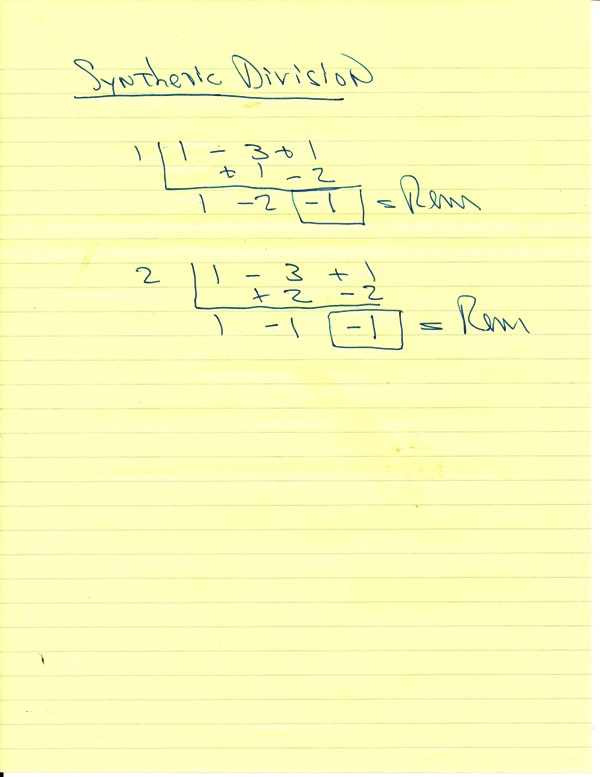What are all the possible rational zeros for #f(x)=5x^3-9x^2+3x+1# and how do you find all zeros?
2 Answers
Explanation:
In synthetic division, you operate on the coefficients of each x-term (using a zero for any missing power of x).
Write the coefficients in order, like this:
5 -9 3 1
then draw an inverted long-division bracket underneath them.
It will look like this, but these are clearly not the coeff's of your function.
This image is from the Purple Math website, which has an excellent description of how to do synthetic division:
http://www.purplemath.com/modules/synthdiv.htm
Check it out, especially page 2 of 4.
I can't get the drawings I made to copy here, but it's all there at Purple Math.
Explanation:
By the rational roots theorem, any rational zeros of
That means that the only possible rational zeros are:
#+-1/5, +-1#
Note that the sum of the coefficients of
#5-9+3+1 = 0#
Hence
#5x^3-9x^2+3x+1 = (x-1)(5x^2-4x-1)#
The sum of the coefficients of the remaining quadratic is also zero. That is:
#5-4-1 = 0#
Hence
#5x^2-4x-1 = (x-1)(5x+1)#
Hence the remaining zero is


